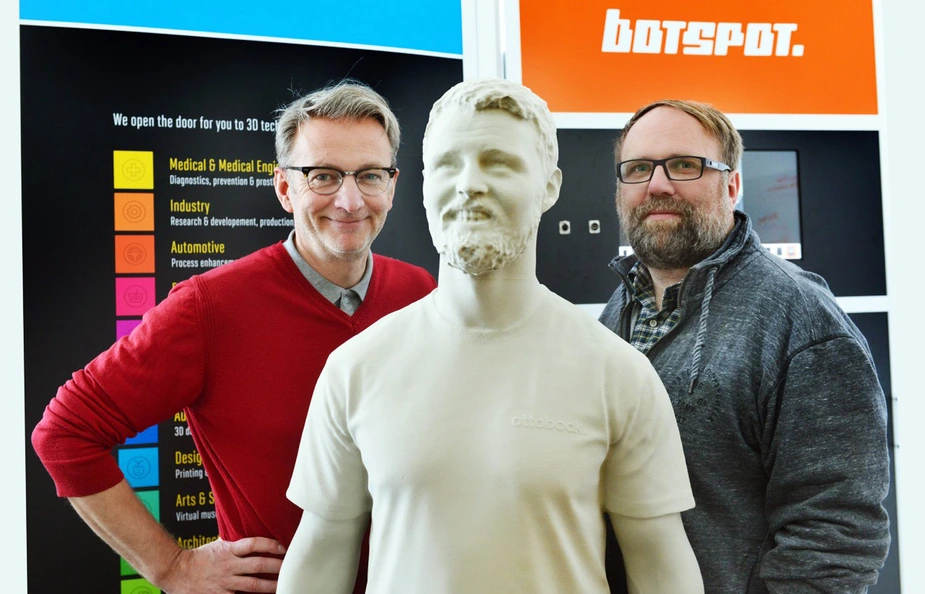Looking Beyond Boundaries
How the Innovation Workshop Schöneweide brings together industry and research
Sizes M, S, XS – one better orders three sizes, then hopefully one will fit. This is how it goes when buying clothing online on sites like Zalando. Too cumbersome and a waste of resources – in terms of time, logistics and manpower - says Manfred Ostermeier, head of the company Botspot, which he founded in 2013. In his mind, customers will soon send an avatar to shop online, a precisely measured, virtual 3D replica of themselves.
This requires scanning and software technology that Botspot is currently developing. Not only people, but sneakers, machine components and entire cars can be measured in a 360-degree cabin, which is equipped with up to eighty cameras. This allows computing a very precise three-dimensional image from a multitude of angles. At the Innovation Workshop Schöneweide, six students from various disciplines followed a call by Botspot to examine how to integrate the use of avatars into the business practice of clothing retailers and how the idea could benefit manufactures of 3D scanners.
The workshop was created by WISTA-MANAGEMENT GmbH (WISTA) and the University of Applied Sciences Berlin (HTW Berlin) with the aim of better connecting industry and research on a regional level. Daniela Lange from WISTA has had many conversations with local companies: “Companies need innovation, but occasionally they lack the resources in terms of time and staff, fresh ideas, and contacts to external experts.”
While the Innovation Workshop Schöneweide provides a space for creativity, the HTW Berlin is the pool for research-oriented expertise on the student as well as the professor level. The WISTA acts as the pivotal interface. “Together with businesses, we develop the questions that will be worked on later and are responsible for carefully matching them with the respective departments at the HTW, where the interdisciplinary student teams are created,” explains Lange. Limited to just a few weeks, the project is based on working in a group at the university while being in close contact with the companies and the professors.
After visiting the company, the students are coached by the experts of Design Thinking, who teach them how to brainstorm, to focus and to expand issues, to develop solutions, and to prototype. Lastly, they are helped with presenting their results and proper project documentation. This provides the students with hands-on experience – which is rewarded with credit points.
Botspot’s priority was to get in contact with young people: “It was important for us to strengthen our contacts to HTW Berlin, to be engaged in the education of the next generation of professionals and to get to know students, who might be potential employees someday,” says Ostermeier. Like many others, it is not easy for the growing company to find highly qualified junior staff.
“Moreover, we benefit strongly from the interdisciplinary approach of the Innovation Workshop,” says Ostermeier. 3D measurement is used in many sectors, for example, visualization in gaming, the presentation of new sneakers of athletic apparel companies, development of auto components, or medicine, for example, the early detection of skin cancer. “The intense contact with students of, for example, textile technology taught us a lot about the specific requirements of that field. That way we can advance the applicability of our technology.”
The Innovation Workshop also wants to continue working on itself. “We have secured funding for the next two years through an education project grant of Berlin-based businesses now we are starting to develop concepts for long-term funding,” reports Lange. Despite the clear link to Schöneweide, the workshop is basically open for companies from all over Berlin given they match the topics of the University of Applied Sciences. It is planned to expand the range of topics and to get more Berlin-based universities and their know-how on board.
By Uta Deffke for Adlershof Journal
